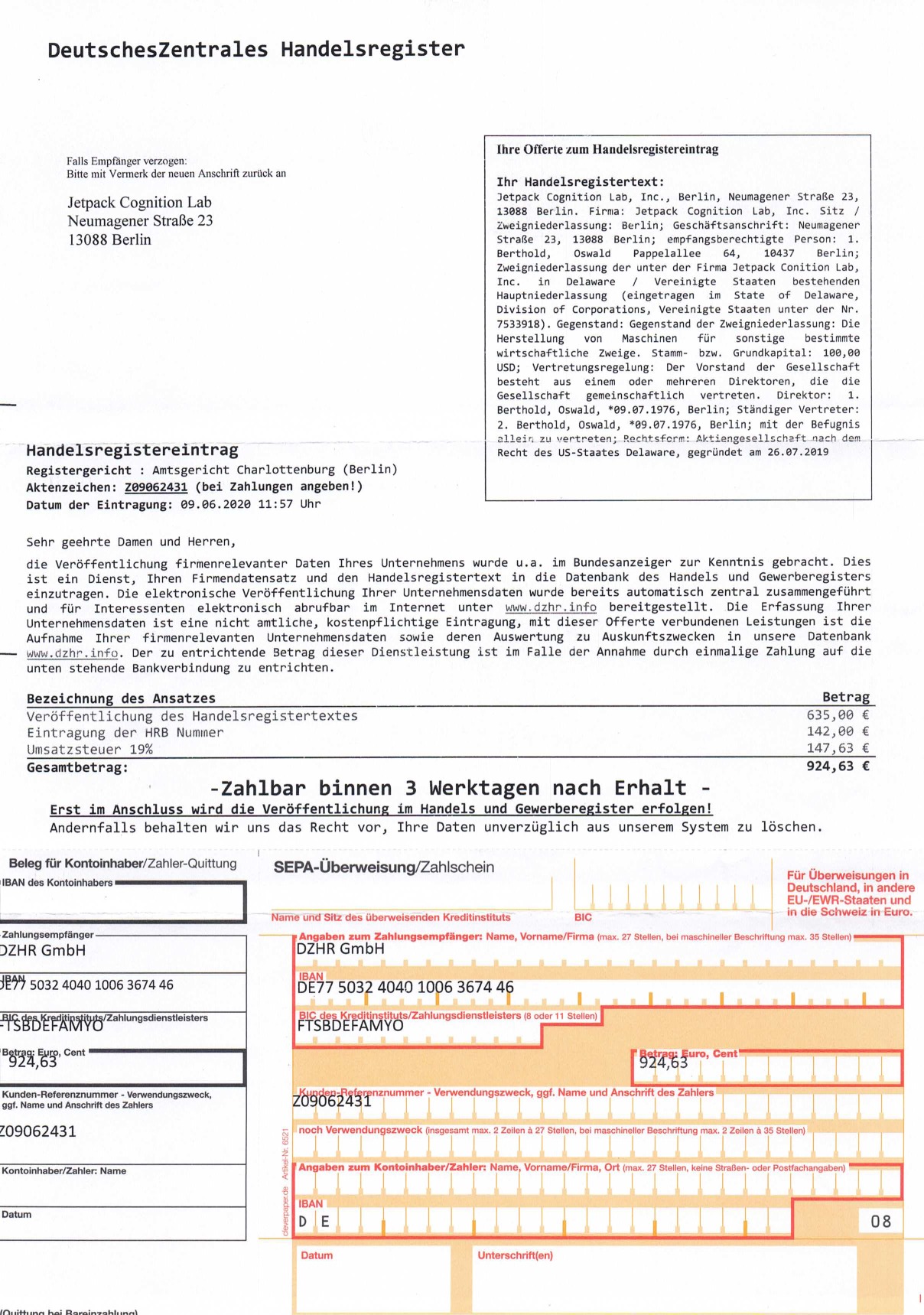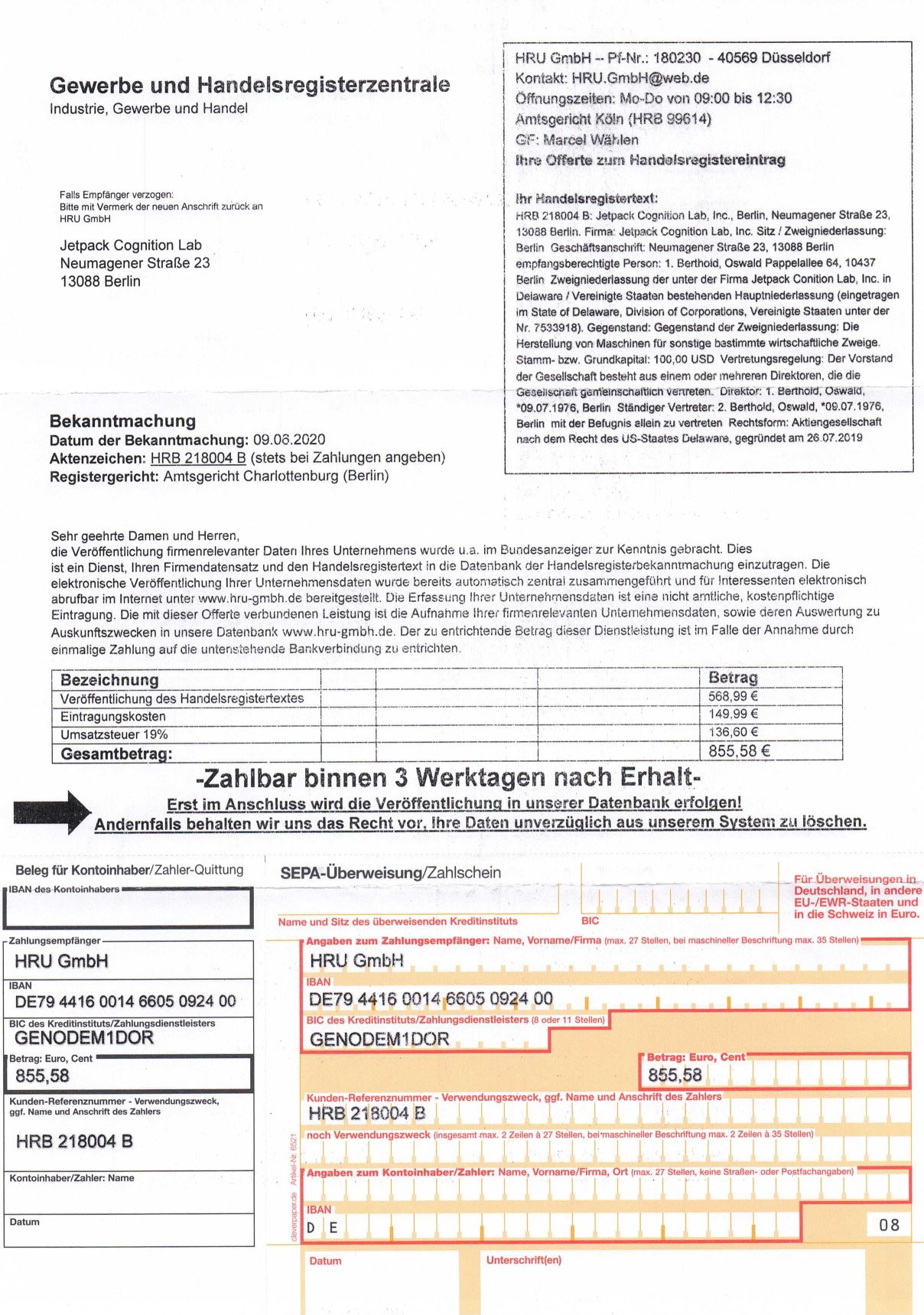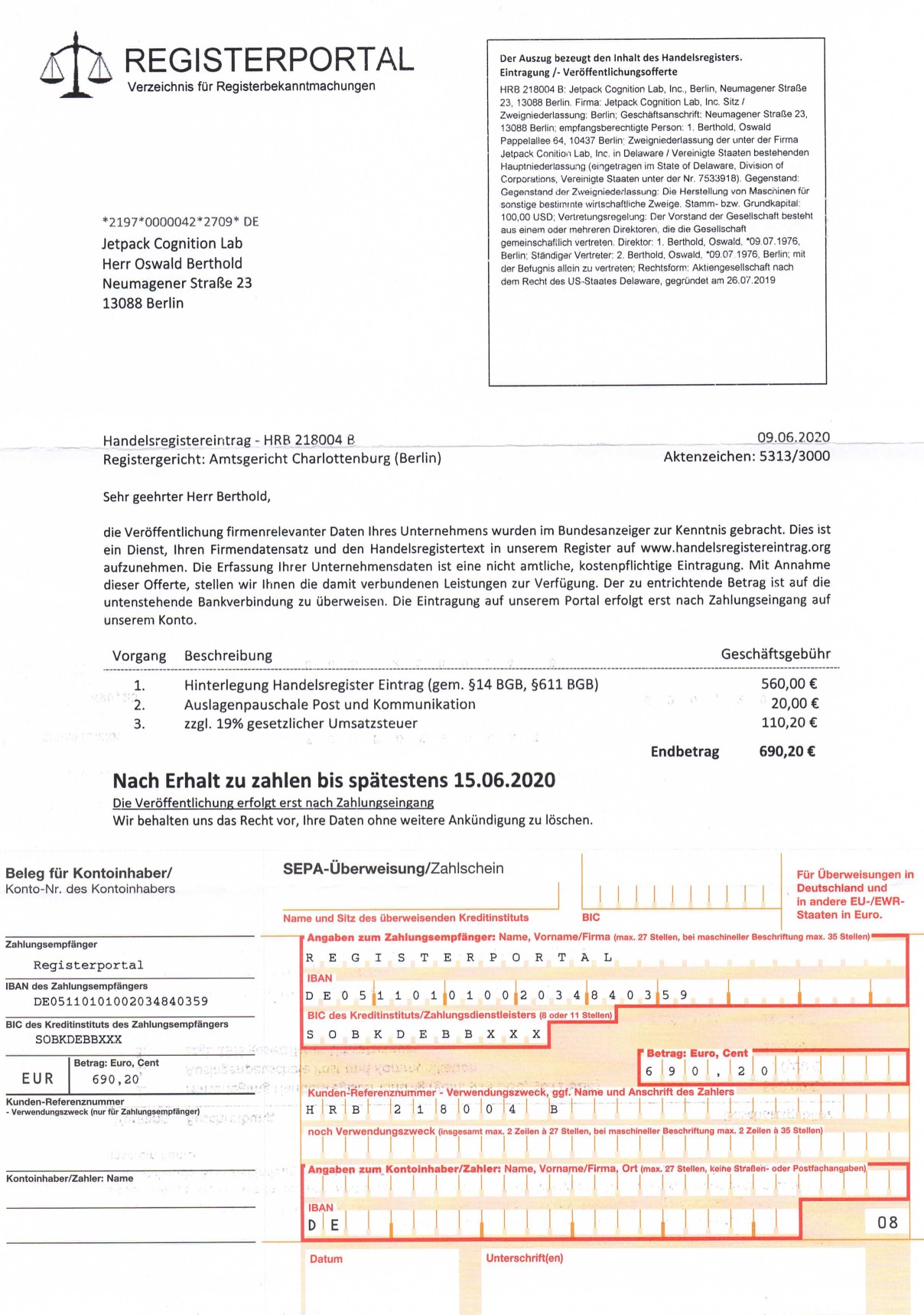Jetpack the Story, Part 3 Enter Germany
jetpack jcl robotics research startups micro funding Jetpack the Story, Part 3 Enter Germany
This is the story of Jetpack Cognition Lab, creator of the Bakiwi robot friend.
recap
In part one we talked about the time and the things leading up to the decision to found Jetpack Cognition Lab and on what terms this is going to occur. Part two covered the mechanics of creating a Delaware C Corporation and making the first steps with the baby company. This third part contains the record of registering the business locally in Germany.
enter Germany
Like many Atlas users we are operating our business outside the US, in our case that is Germany. The freelancer model sketched above is not a long-term solution. Also, German authorities and businesses will not interact with you as a company on eye level. This means, for example, no business accounts with vendors, no bank accounts with German banks, no tax ID, and so on, making employment hard or impossible. To become a domestic business entity proper you have to have an entry in the federal commercial registry (Handelsregister). The usual advice in this case is to create a wholly-owned German subsidiary of the foreign company, for example a GmbH. We did not want to do this rightaway as it means again quite a bit of administrative overhead and liabilities down the line.
Zweigniederlassung
It turns out that there exists a nice solution for the initial phase. It consists of creating a German branch of the company (Zweigniederlassung in German) simply by registering it with the federal German commercial registry. This can be done by any notary.
German commercial registry, certified copies, …, the Apostille
The list of required documents we obtained is this, translated from German:
- publicly certified extract from the commercial register of the company, together with a certified translation
- publicly certified copy of the currently valid articles of association together with a certified translation
- publicly certified copies of the shareholders’ resolutions containing the appointment of the company’s directors, together with a certified translation
- List of shareholders
The public certification and certified translation of each document serves to legalize the foreign documents, which means to make them legally valid in the destination country. It was not obvious rightaway, that the named documents are legalized by different mechanisms.
Let’s translate each item to the Stripe Atlas terminology. The commercial register extract translates to the Certificate / Articles of Incorporation. The articles of association translate into the Bylaws, and the shareholder’s resolutions is a document called Board Approval. The shareholder listing explains itself.
The articles of incorporation correspond with the German Handelsregisterauszug, and basically consist of the Certificate of Incorporation. As a current extract from a public database, it needs to be legalized through a process called an apostille which exists by decree from the 1961 Den Haag convention. Apostilles can be obtained through a large number of providers of legal services, for Stripe Atlas users the document can be ordered via LegalInc for something on the order of a 100 USD.
The other documents are sufficiently legalized through the declaration of authenticity on part of the company representative. All documents need to be translated at a legal quality certification level. This is the biggest chunk of cost in the process with quotes ranging from 1K to above 2K EUR for a set of different translation services in Germany. A mid-range choice worked for us.
Registering the business with translated documents
With the translated stack of your proof of company a local notary can be activated and the task negotiated. The notary prepares a free form letter that asks to enter the Zweigniederlassung in the German trade register, then you go there once, proof your identity and sign it. The document is sent by the notary to the appropriate German court for processing.
If the application is accepted for entry, the court will send you paper mail with their service charges, so you have to make sure that the mailbox is up and running at the specified address. After the service charges are paid, the registration will be completed. The process has indeterminate duration, in our case it took some three to four weeks. As soon as the registration is effective, it will be published online by the German Bundesanzeiger. A notification of your completed entry will be sent by paper mail to you again.
There is an interesting side effect of the maneuver. There exists a large semi-legal industry of scammers that will scrape the Bundesanzeiger announcements and will send you fake invoices that try to look like official court letters asking you to urgently pay a significant amount to a given bank account. The fakes can be easily spotted but might take you by surprise if consumed in a wrong moment. All of this is well known and authorities will issue warnings about it, the Bundesanzeiger even keeps a blacklist of well known entities involved in the scams. Fun fact is, that the scamming process is so well automated, that the fakes will arrive in your mail even before the official notice. The upside of all that is a very fast indication that the registration process has been completed.
Fake invoice examples



Bank account
With the completed registration it is straightforward to get a German bank account, if you ask the right bank. Smaller banks often don’t have a legal department that can deal with the international regulatory machinery, as was the case with our desired banking partner in DE. Suggestions we received that are known to work were Sparkasse and Commerzbank.
Summary
The next story parts will be about these topics currently work-in-progress at the lab.
TODO: taxes 2019
TODO: working contracts w/ German branch
TODO: the role of CEO
TODO: hiring and building a team
Comments
tag cloud
robotics music AI books research psychology intelligence feed ethology computational startups sound jcl brain audio organization motivation models micro management jetpack funding dsp testing test synthesis sonfication smp scope risk principles musician motion mapping language gt fail exploration evolution epistemology digital decision datadriven culture computing computer-music complexity algorithms ai aesthetics action wayfinding visualization tools thinking theory temporal sustainability supercollider stuff sonic-art sonic-ambience society slop signal-processing self score robots robot-learning robot python pxp priors predictive policies philosophy perception organization-of-behavior open-world open-culture neuroscience networking network navigation movies minecraft midi message-passing measures math locomotion llms linux learning kpi internet init health hacker growth grounding graphical generative gaming games explanation event-representation embedding economy discrete development definitions cyberspace criticism creativity computer compmus cognition coding-agents business birds biology bio-inspiration benchmarks android agents